Building Cultural Understandings in ELC Life
Dear Families
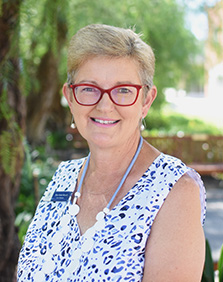
At St Peter’s Girls’ Early Learners’ Centre, we are active participants in the promotion of cultural awareness. One of our key 2020 ELC strategic goals is building the children’s cultural and ecological knowledge to develop a strong foundation for reconciliation.
The Early Years Learning Framework promotes the understandings of cultural difference and the necessity to develop skills to understand, communicate and interact with people across many cultures. We are demonstrating this through the value we place on building understandings around Aboriginal and Torres Strait Islander culture.
We believe that genuine engagement provides children and adults with the time to build shared understandings that promote the perspectives of the other. This is why we consider it vital to nurture ongoing relationships with significant people who we can work alongside and learn from over time.
A recent example was a visit from Boori Monty Pryor who has been coming to share with us for over four years. During this time, Boori has developed a strong connection with the children through storytelling and movement. He believes that these languages are pivotal tools for young children’s understandings. The Aboriginal stories, music and animated actions he shared gave us insight into his cultural heritage. Many children remembered Boori from last year and warmly welcomed him and participated in the sessions with enthusiasm. Boori quickly established trust with even our youngest ELC learners.
We are fortunate to have Kaurna elder Tamaru working alongside the ELC community on a more regular basis. With a focus on Kaurna language, we have embedded Kaurna songs and rituals into our daily practice. We have learned a lot from Tamaru’s regular visits as he challenges us to think differently and to build understandings about our land. We no longer take for granted where we walk every day. We have appreciation and respect for our land and can describe many elements about it in depth. Our children are becoming the voices for reconciliation as they build their cultural and ecological knowledge.
We feel a responsibility to ensure we are providing these rich relationships and opportunities in the early years. Our work is intentional; we are educating our citizens to have an opinion and to be able to communicate and engage across culture. The flying of our three flags at the ELC is a daily reminder of the respect and genuine attitude with which we approach this learning. We hope it helps our wider community understand the importance of building this foundation for reconciliation. Our 2020 goal will assist us as we seek to progress our thinking and understandings in this important area.
Kind regards
Kate Mount
Director of Early Learning
Health Precautions in the ELC
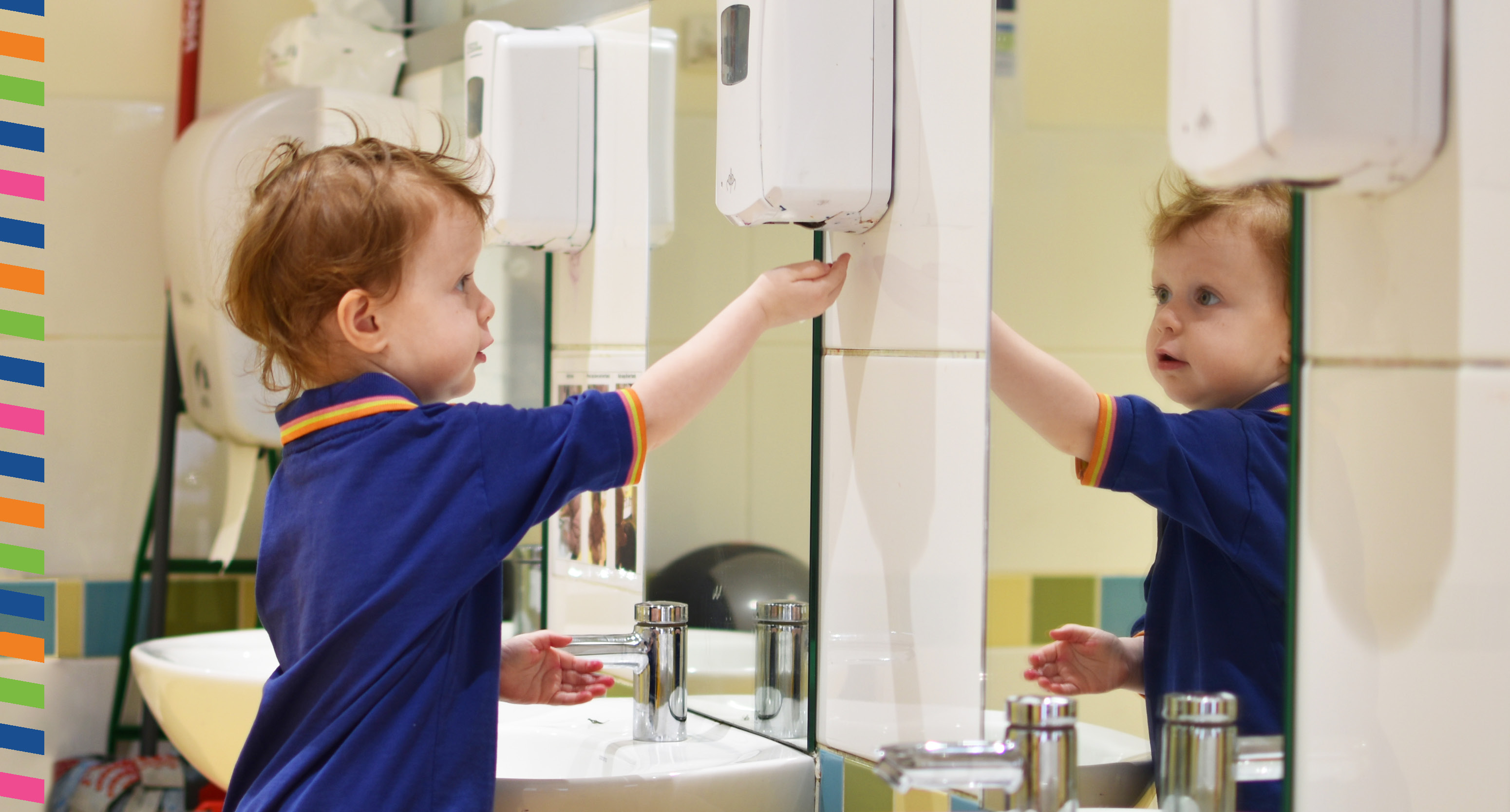
Given the challenging circumstances that our nation is currently facing with COVID-19, we would like to reassure ELC families that your health and wellbeing is our utmost priority. We are vigilantly taking action to ensure stringent hygiene in the ELC. Hand washing and sanitisation practices are at their highest level and we are on alert for any early symptoms of sickness in children, families and staff.
Children’s sleep at ELC will be adapted to match the 1.5m distance recommendation, and group sizes have been significantly reduced. Additionally, our spaces undergo an extensive clean each evening, with a particular emphasis on surfaces such as door handles.
Students are asked not to attend ELC if they are unwell, and adults displaying any signs of illness should not enter the Centre.
The School will continue to update families on a regular basis. We hope that we can all work together to ensure the health and wellbeing of our families and staff whilst providing as much stability and continuity as possible.
We thank you for your ongoing cooperation and understanding.
Coronavirus Disruptions
Please note that the Garden of Saintly Delights Fair has been cancelled and ELC photos scheduled for 23 – 25 March have been postponed.
We ask that you hold on to the photo order forms that were sent home with your child until a new date is confirmed later in the year. If forms have already been returned, these will be kept by ELC staff until required.
Vacation Care Bookings
Vacation Care booking forms will be sent home over the coming weeks. You can also download the form here. Vacation Care bookings are required if you wish for your child to attend ELC outside of normal term bookings. Please see ELC staff if you have any questions regarding this.
Please note, Vacation Care commences on Tuesday 14 April (after Easter), with Term 2 beginning on Monday 27 April.
What’s Happening in
Learning Community 1
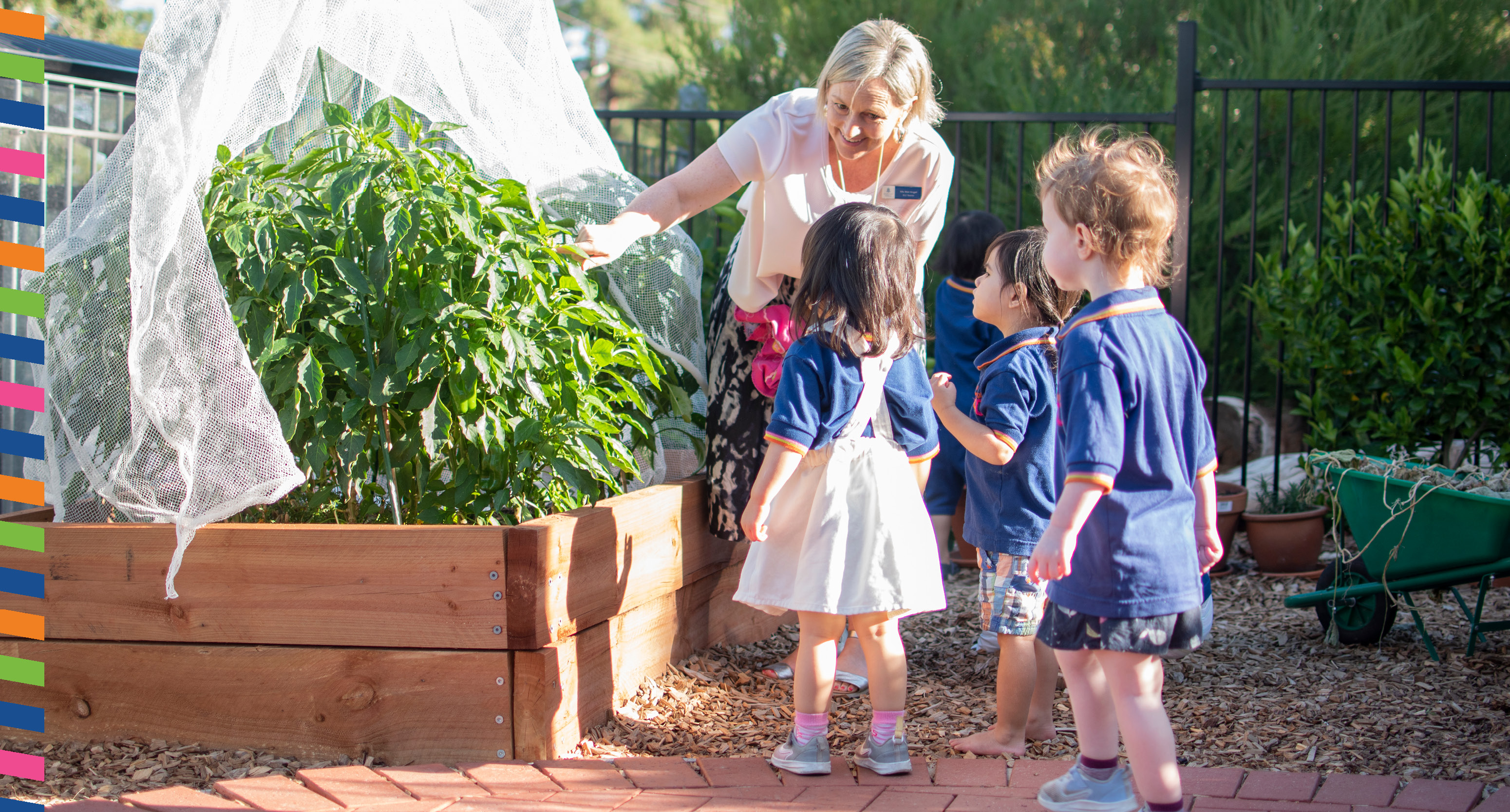
Across Learning Community 1, we have observed the many connections children have made through food. In Term 1, we chose the Central Idea, ‘Sharing and creating food can welcome people in our community’ to support and explore our value of welcome.
Food is a common source of connection in all cultures, and also provides opportunities for us to work with the children on developing their understanding around sustainable practices.
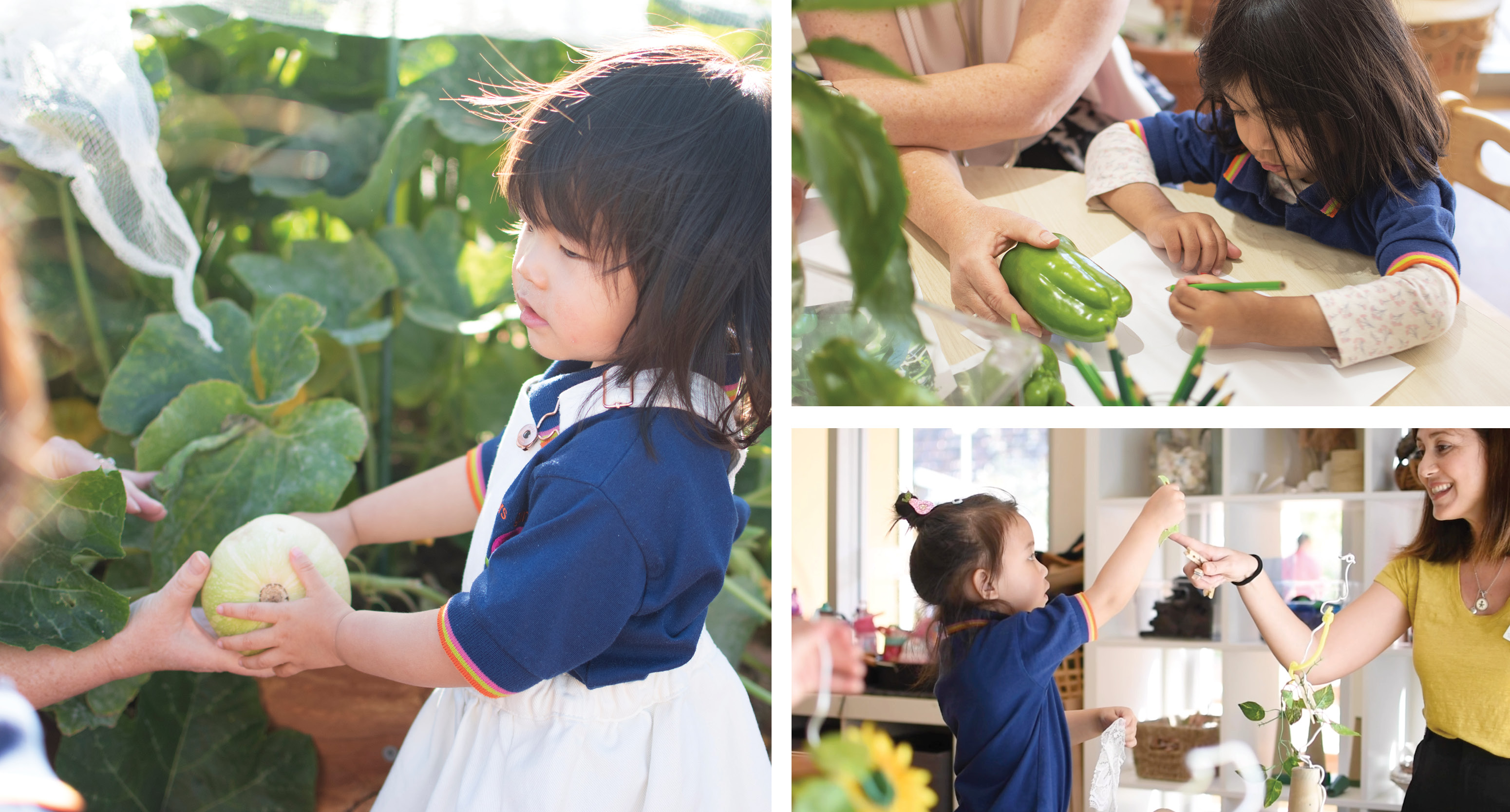
A Visit from Boori
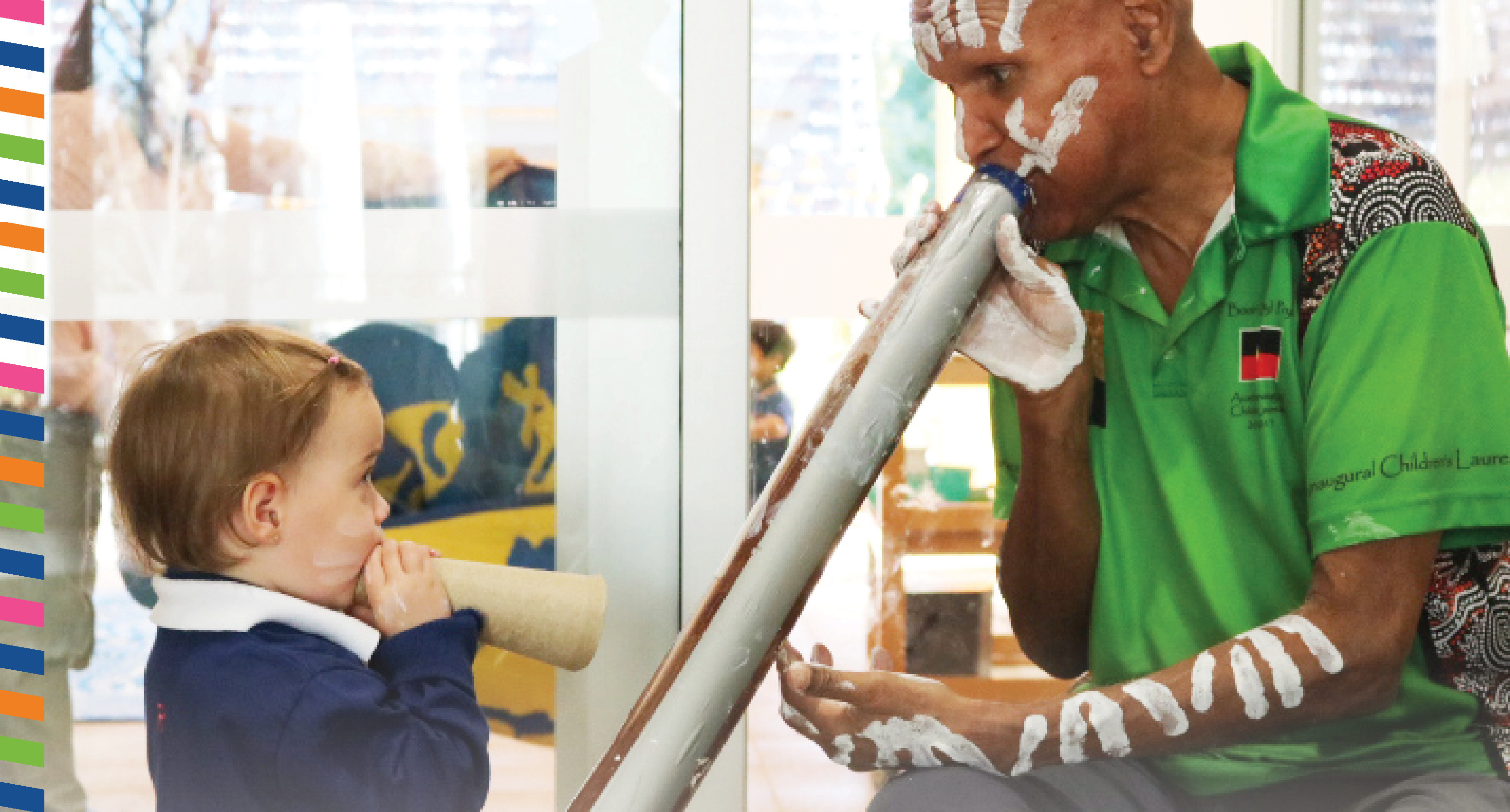
“We need to all become storykeepers if we are to belong here in this country.”
— Boori Monty Pryor
Last week, the ELC community was delighted to welcome Boori Monty Pryor. Boori is a descendant of the Kungganji and Birri-Gubba nations and has shared his passion for literacy and knowledge of Aboriginal storytelling with the ELC for several years.
Among his many achievements, Boori has written six award-winning books and was named one of two inaugural Australian Children’s Laureates in 2012. His story of transitioning into his role of storykeeper was made into the international Emmy-nominated film, Wrong Kind of Black. He has also helped in creating a short film about the importance of storytelling titled Brown Paper Bag.
During his visit, Boori gifted us with several of his stories. These stories, some over 30,000 years old, have strong ecological and sustainable messages, equally as important today as when they were created. As he engaged the children and educators with culture through storytelling, song, dance and music, he explained that his stories were now our stories and that, together, we could create a positive vision for the future for all Australians.
Family Fun at Twilight Picnic
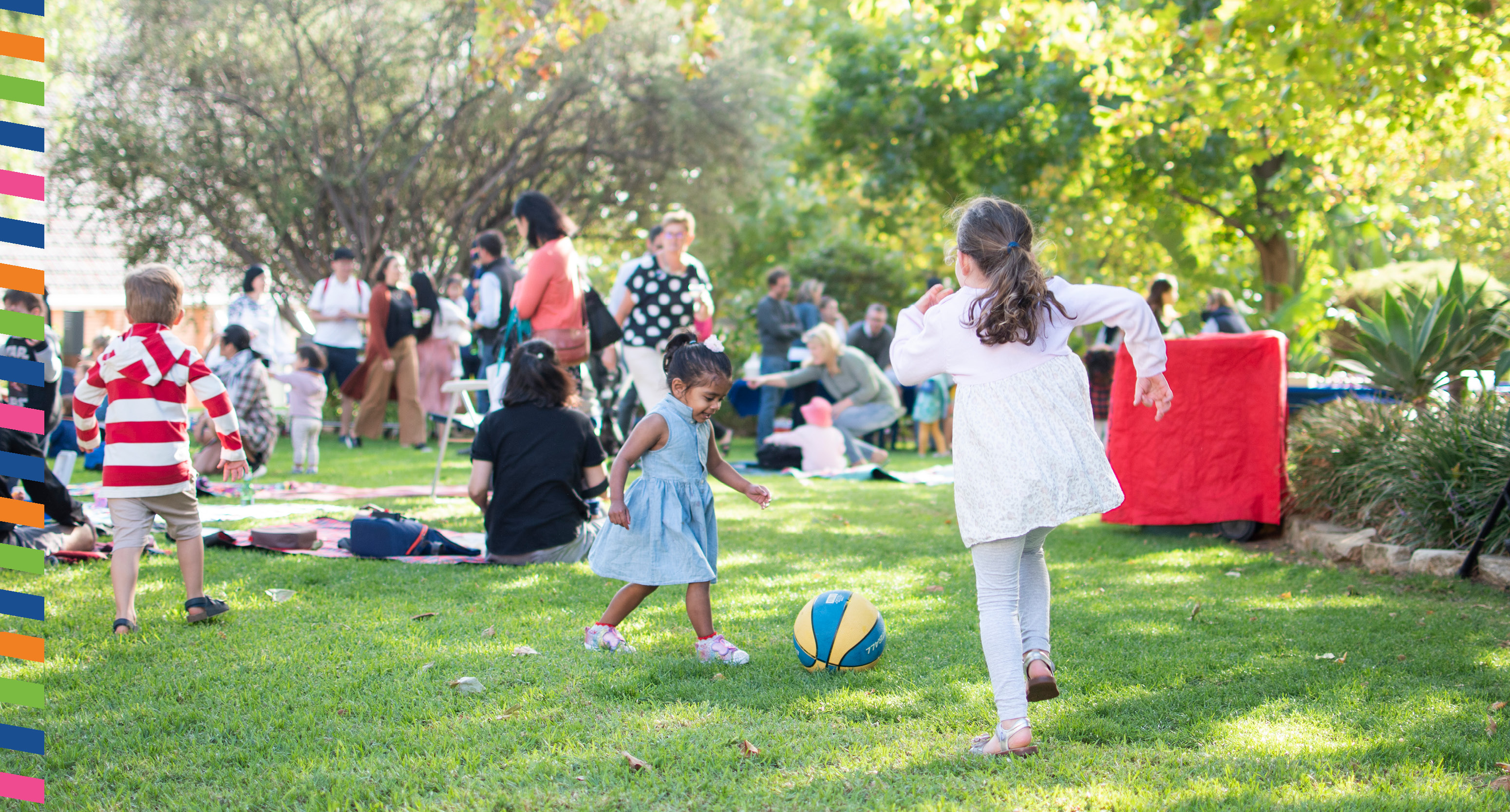
The Chiverton Lawns were the perfect backdrop for the ELC Twilight Picnic last Friday evening. Despite it being a little chilly, a fantastic time was had by all. The sound of music playing, children laughing and families chatting created a beautiful atmosphere. It was wonderful to see new families being welcomed into our ELC community and new connections being made. We look forward to building more connections with families throughout the year.
Nikki Geyer
Friends of the ELC President
来自黄老师的信息
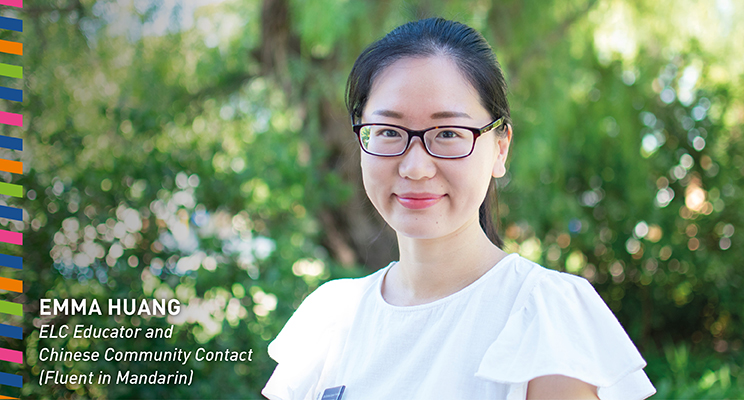
早教中心卫生预防措施
当前,我们国家正面临来自新冠病毒的严峻挑战。在这一形势下,我们想再次向早教中心的孩子家长们强调,我们始终将你们的健康与福祉放在首位。我们保持高度警戒,积极采取各项措施来确保早教中心的卫生。洗手以及消毒和清洁按最高标准进行,并密切注意孩子、孩子家人和教职工可能出现的早期病症。
孩子们睡觉时的间隔将被调整到建议的1.5米距离。每个小组的人数已经大幅度减少。此外,我们每天晚上都会对早教中心的各项设施进行彻底的清洁和消毒,尤其是物品的表面,如门把等。
如果有孩子感到身体不舒服,请不要送来早教中心。如果接送孩子的成年人有任何病症,请不要进入早教中心。
请注意,“圣悦花园”活动已经取消,原定于3月23到25日举办的早教中心照片分享会已经推迟。在今年晚些时候确定新的日期之前,请大家先保管好由孩子带回家预订表格。
学校将继续定期向家长们汇报最新情况。希望大家能够同心协力,确保各个家庭以及教职工们的健康,并最大程度地保持教学活动的稳定和连续性。
感谢大家持续的合作与理解。
Emma works in Learning Community 2 on Mondays, Thursdays and Fridays from 9am – 5pm.
Accessing the ELC Learning Community Home Page
The ELC Learning Community Home Page is a dynamic online sharing space that invites you to participate in the communities’ learning as it happens. It provides a window into the children’s life at the ELC as educators share documentation of intentional teaching, specialist lessons and spontaneous moments.
Videos and images are shared directly with families that capture the rich learning experiences in which the children are engaged throughout their time at the ELC. The Learning Community Home Page also enables us to share more of the process of learning, rather than just the end product.
The Learning Community Home Page is accessed via the St Peter’s Girls’ myLink Parent Portal. If you have not accessed myLink or the Learning Community Home Page before, please follow these instructions:
Accessing myLink for the first time:
• Visit https://mylink.stpetersgirls.sa.edu.au
• To set your password, click the link located below the sign in section
• Your username was emailed to you upon your child’s commencement (see Helpdesk contact details below if you cannot source your username)
• Enter your unique username, click ‘Next’
• On the next screen, enter the security code sent to your mobile
• Enter the password you would like to use and press submit
• Return to the login screen at https://mylink.stpetersgirls.sa.edu.au to access myLink
• Several instructional videos are available via the Welcome page if you click on the ‘HELP’ menu tab.
Accessing the Learning Community Home Page through myLink:
• Access myLink as per the instructions above
• Click on the ‘MYLINK HOME’ tab
• Click on your child’s name tab
• Under ‘Class Contacts’ click on the ELC room name (you may need to enter your username and password again)
If you have any problems accessing or navigating myLink, please contact the IT Helpdesk via (08) 8334 2227 or helpdesk@stpetersgirls.sa.edu.au.
ELC’s Online Etiquette Policy:
Please note that the ELC Learning Community Home Page and ELC eNews will contain images and video of other children. We therefore ask that you do not copy or share images or videos, especially on social media, if they contain other children.
Sustainability in the ELC
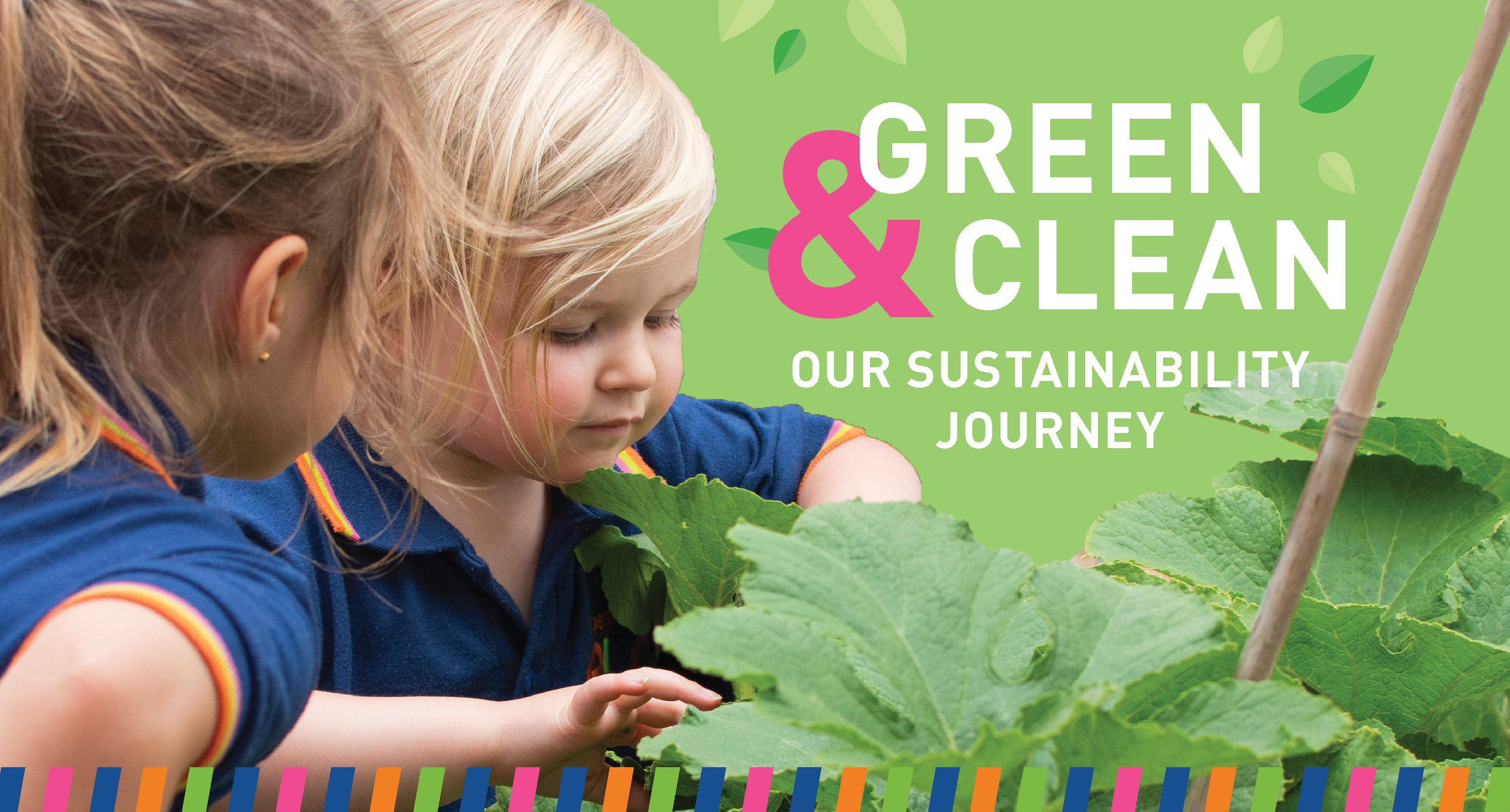
We have been engaging the children in discussion about the harvesting process of our produce in the ELC Community Garden. As our capsicums and pumpkins are blossoming in the garden beds, we have discussed why and when we should pick the produce.
A friend in Learning Community 2 exclaimed that, “We need food to live”, and so we have been discussing the importance of choosing produce that is ripe and consulting with our community members (each other) whether we have a purpose for picking the vegetables. If there is no purpose, we are questioning the children’s desire to pick. By asking the children to consult with others, this is further deepening their understandings of community and respect for the land.
Green & Clean question of the day: When should we pick vegetables from the garden?
Staff Spotlight
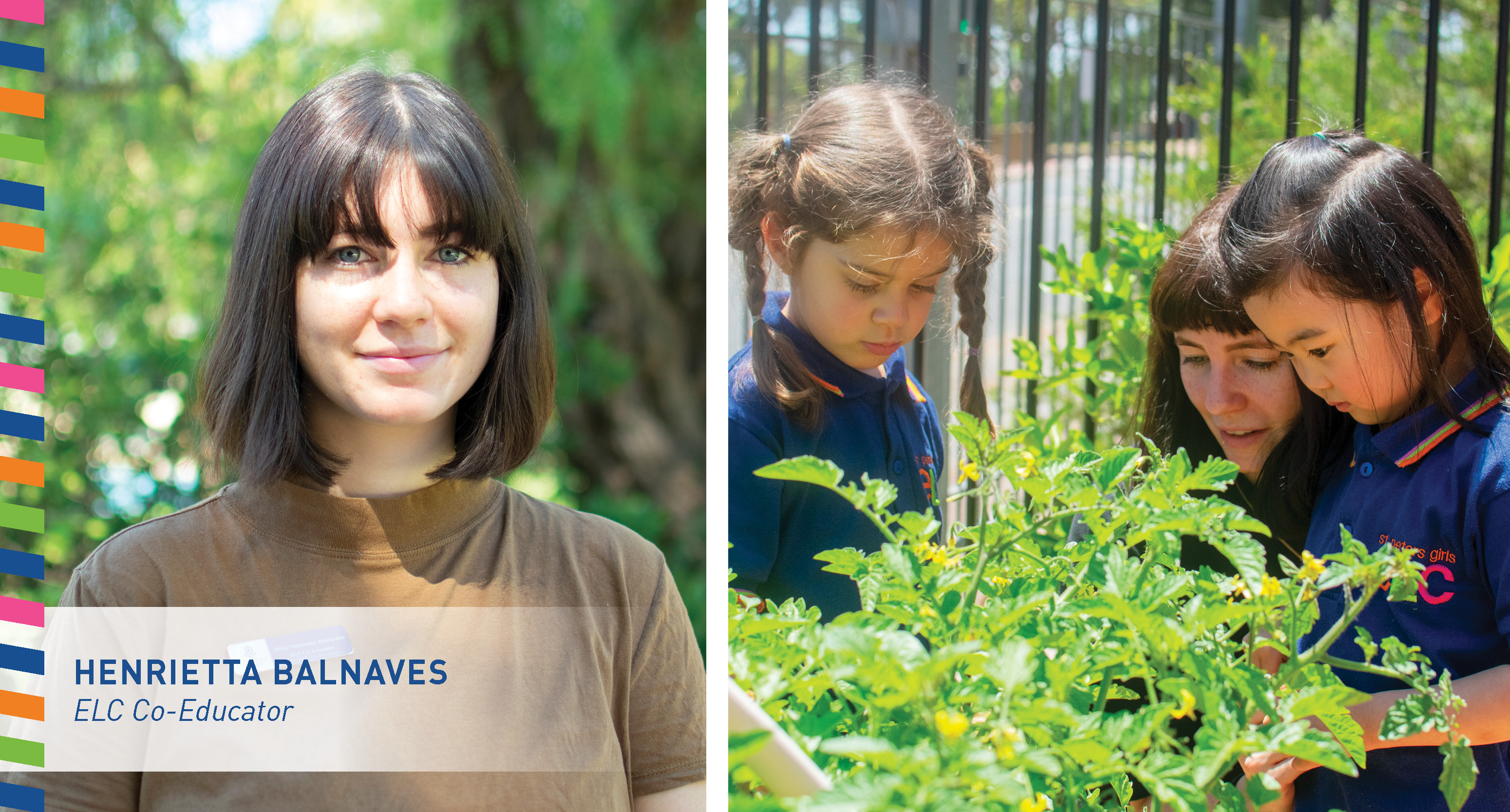
Meet Henrietta Balnaves. Henrietta has been with St Peter’s Girls since 2016 after developing a passion for early learning through her many years working as a nanny. She is currently completing a Bachelor of Early Childhood Education at the University of South Australia. Henrietta is extremely passionate about teaching children sustainable practises, and the importance of nutrition and a balanced, healthy lifestyle.
What excites you about working at St Peter’s Girls’ ELC?
Aside from the excitement I get coming to work each and every day and being welcomed with huge smiles from the children, I am also excited by the opportunities for professional growth and learning that we are offered here within the ELC. It shows the priority our Centre has on developing our strengths as staff which will ultimately benefit the children!
What makes St Peter’s Girls’ ELC special?
Each day, I feel so grateful to be surrounded by such a kind, welcoming and supportive community made up by the ELC staff, the children, the families and the wider School community. It is such a special feeling that cannot be matched, such as the atmosphere at our Twilight Picnic last Friday.
What are you most looking forward to this year in the ELC?
Working with the children to develop and deepen our understandings around sustainability and our environment. There are so many opportunities for the children to engage in sustainable learning such as maintaining our worm farms and correctly sorting our waste, and having the chance to experience a full cycle of seasons within our Community Garden. There is so much to learn from our natural environment and I love supporting children to make meaningful connections and relationships with the earth.
Keeping Safe Curriculum
As part of our commitment to quality education and care, we implement the Keeping Safe: Child Protection Curriculum (KS:CPC). This is a respectful relationships and child safety curriculum that teaches all children and young people that they have the right to be safe and that they can help themselves to be safe by talking to people they trust.
The KS:CPC is an evidence-based, best practice curriculum developed collaboratively with child protection experts, teachers, educational leaders and other professionals. The teachers delivering the program are currently undertaking training in the use of the curriculum, and we look forward to sharing details of this via future editions of the ELC eNews and on our Learning Community Home Pages.
News from Learning Community 1
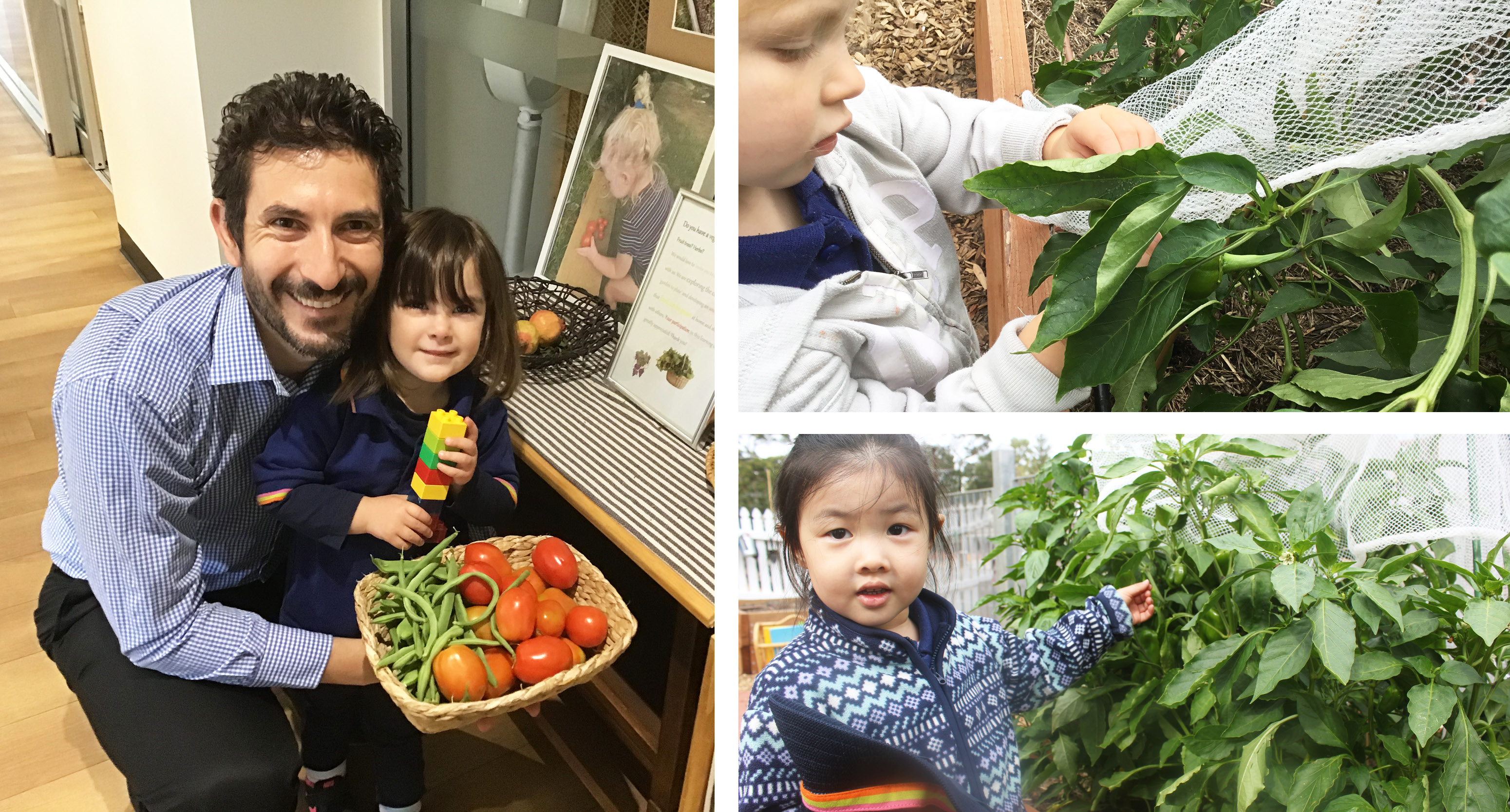
Inviting families to bring produce from their home gardens has been an avenue of welcome, a simple way to engage with the learning and to create a beautiful experience of togetherness for the child, their family and the other children.
We have used all of our senses to learn about familiar and unusual fruits and vegetables, from tomatoes and herbs to pomegranates and kumquats. Sharing food from their home gardens helps children to feel known and recognised, and it further deepens their sense of belonging to our community. It sparks conversations between parents and educators, thus helping to build relationships and authentic partnerships.
We have made many trips to the ELC Community Garden this term, where children have had the opportunity to notice, observe, hypothesise and reflect on what is occurring there.
“Who has a garden at home?” – Ms Angel
“Me!” – Axel
“I do!” – Aiden
“I have two in my home.” – Harriet
“Yes – capsicum in the garden.” – Ally
“Can we eat this?” – Ms Angel (pointing to a capsicum)
“Maybe yes.” – Aiden
“No,” – Harriet
“Ally.” – Yes
“You need to cook it.” – Lucas
Our own observations have been that while the children recognise that there are capsicums growing on the bushes, their answer to the question, ‘Can we eat these?’ was often ‘No!’. Involving them in the process of picking, cutting and eating the capsicums has supported their understanding of where our food comes from, and how we can all be involved in the process of growing, harvesting and sharing it.
Mel Angel and Annabelle Redmond
Learning Community 1
News from Learning Community 2
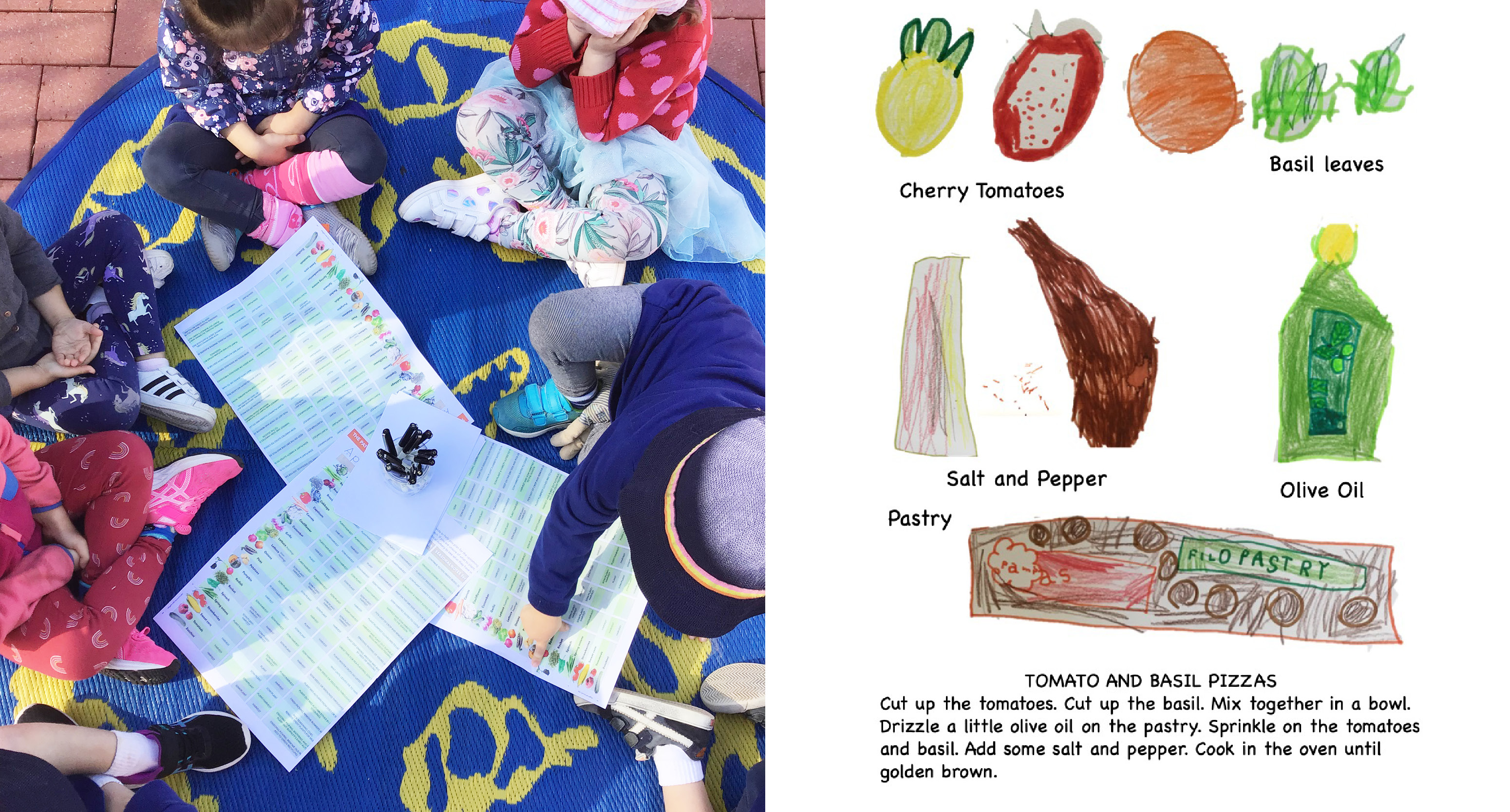
Throughout the summer in the ELC Community Garden, we have cared for and harvested an abundance of produce. The children have taken responsibility for watering the plants and observing and monitoring their growth. They have been rewarded for their nurturing by harvesting, cooking and eating carrots, capsicums and tomatoes. Alongside this, the garden is supporting our research into sustainability as we investigate organic waste, compost and worm farms.
Now that the weather is changing, the children and educators in Learning Community 2 have been researching what we can plant that will suit a colder climate. We have been developing this learning by:
- Discovering and observing the environmental changes as we move into autumn
- Cooking with seasonal produce and creating our own recipes
- Collecting data on our research of what we can plant and what we want to plant
“We might think that we are nurturing our garden, but of course, it’s our garden that is really nurturing us.”– Jenny Uglow (Author)
Our relationship with the garden has become reciprocal as we encounter it with our minds, bodies and hearts. As we develop our knowledge and understanding of seasonal food, and put this into practice, we begin to understand that we can make a difference to our lives and our environment through sustainable eating. As we develop a love for this place, we are inspired to extend that love and care to the natural environment beyond the ELC.
Our learning has been supported by many generous donations from families from their own gardens. We invite you to please share your autumn recipes with us, and if you would like to come and cook with us, please let us know.
Please visit our Learning Community Home Page to see our seasonal gardening in action.
Leanne Williams, Nell Tierney and Laura Reiters
Learning Community 2
Absences in the ELC
Student Absences
Please notify the School via one of the following methods for late arrivals/early departures and absences, ensuring a reason for the absence is included.
Text: 0428 601 957 (save to phone contacts as SPGS)
Email: attendance@stpetersgirls.sa.edu.au
Phone: 8334 2200 or phone the relevant room as per the contact list below.
Feel free to also include the relevant room teacher when sending via email.
ELC Room Contacts:
Bell Yett – 8155 5777
Ferguson – 8155 5776
Hallett – 8155 5775
Stonyfell – 8155 5778
Sun Safety in the ELC
Each day that your child attends the ELC, please ensure they bring a broad-brimmed hat. If you do not have an ELC uniform hat, we ask that you pack another broad-brimmed hat for your child to wear at ELC. If your child does not have a hat, they will be asked to play under the shaded areas or indoors.
Please note that sunscreen application is also being undertaken regularly at the ELC; if your child requires an alternative sunscreen, please provide this to your child’s teacher. We also ask that your child wears their correct ELC uniform, and refrains from wearing dresses or singlets where the shoulders are exposed. Appropriate footwear is also required, and we ask that children wear sneakers or sandals that have a backing to them.
Children’s Lunch Boxes
It is important that your child’s lunches are prepared and stored safely to avoid the risk of food poisoning. Keep pre-made lunch boxes in the fridge until they are ready to be packed into your child’s bag. We ask that you pack an ice block/ice pack in your child’s lunch box to keep food cold. Please consider healthy, safe, lunch box alternatives such as fruits and vegetables, and please ensure your child has a drink bottle filled with water each day they attend ELC. Our staff can refill the bottles if required throughout the day.
ELC Immunisation Policy
Under the Government’s No Jab No Pay policy, families must meet immunisation requirements to receive the Child Care Subsidy. Further information is available from the Department of Health by clicking here.
Children with high-risk conditions, as well as children who are not immunised against them, may be excluded from the ELC in accordance with the ‘Staying Healthy: Preventing infectious diseases in early childhood education and care services’ guidelines. Please refer to our Exclusion Policy for further information.
Common illnesses requiring exclusion include:
Influenza
Chicken Pox
Conjunctivitis
Diarrhoea
Hand, Foot and Mouth Disease
High Temperature
Infectious Hepatitis
Measles
Meningitis
Mumps
Rubella (German Measles)
Scabies
Scarlet Fever
School Sores (Impetigo)
Upper Respiratory Tract Infection
Vomiting
Whooping Cough
